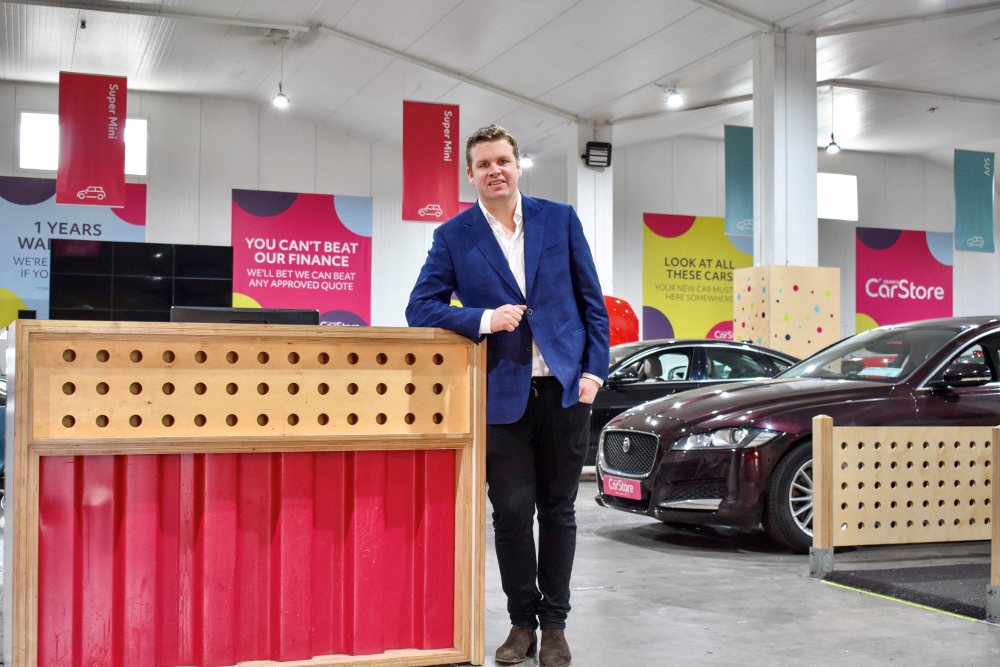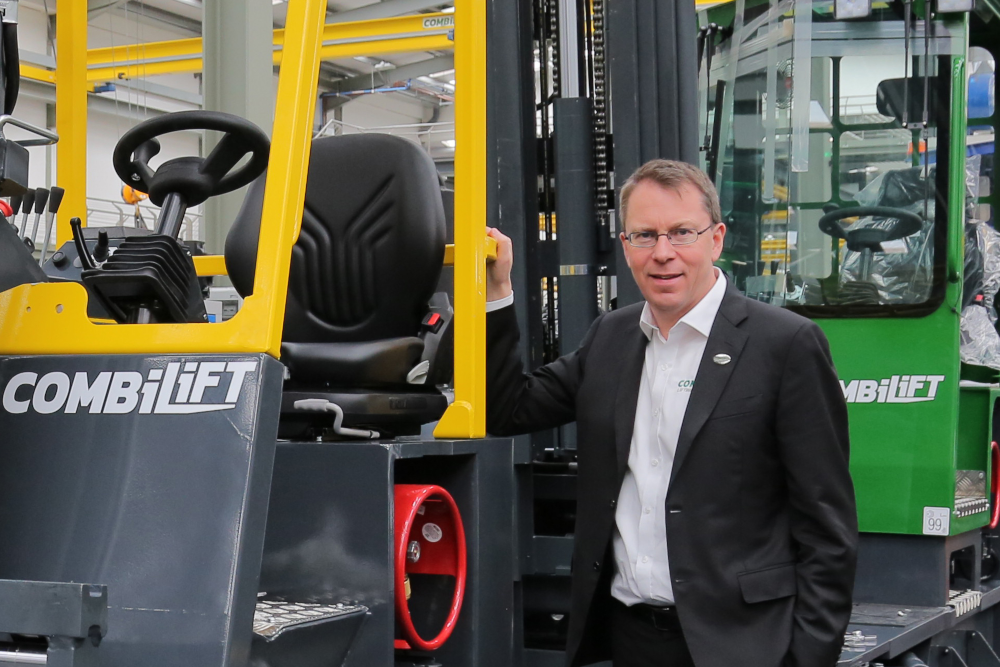Podcast Ep 34: Lighthouse Studios’ managing director Claire Finn tells John Kennedy about Ireland’s thriving animation scene and growing a global studio from Kilkenny.
“I have to confess I had never heard of Cuphead before we started working with Netflix on The Cuphead Show, I’m not a gamer, but when I mentioned it to our crew there was a lot of cheers and whooping,” laughs Claire Finn, managing director of Lighthouse Studios in Kilkenny.
If you haven’t heard of Lighthouse Studios the chances are you and your family are already enjoying their content over platforms like Netflix, Disney, Apple TV and more.
“The diversity of voices I think makes the creative stronger. Culture feeds into the creative voice. From a global perspective Ireland is definitely up there”
Lighthouse Studios is a 2D animation studio in Kilkenny based at the Hogwarths-like building that is Kieran’s College. Led by Finn, the company employs 165 people and is currently working on four productions including ‘The Cuphead Show’ for Netflix and a feature for Bento Box/Disney. Lighthouse has just signed a new show for Warner Bros and is in development with its own show which has been bought by a major streaming platform.
The company is a big employer in Kilkenny and boasts over 25 nationalities. Lighthouse is a sister studio to Mercury Filmworks and Cartoon Saloon and works with production partners such as Amazon, Cinesite, Apple, and Disney.
Streaming is the future of Hollywood
ThinkBusiness launched a new way of sharing business stories featuring a wonderful mix of entrepreneurs and business leaders shaping the future. Our podcast series is available on ThinkBusiness every week but also on our channels and via mobile apps on Spotify, SoundCloud, Stitcher and Apple.
Finn, who previously worked as a creative advertising executive and producer with London-based Firecracker Films, is leading Lighthouse Studios’ drive to produce high-quality children’s and family animated content as well as supporting the studios’ global production clients.
The studio, which utilises the latest technologies in the production of 2D animation, also offers end-to-end production services, encompassing everything from script to post including design, storyboard and animation.
I begin our conversation by talking about Ireland’s prowess at animation. We recently compiled a list of more than 33 animation studios in Ireland that are punching above their weight globally, including players like Brown Bag Films, Kavaleer Productions and Boulder Media, to name a few.
Kilkenny itself is a mini-Hollywood when it comes to cartoon and animation studio talent, as it is also home to Cartoon Saloon, which was nominated for an Academy Award in 2010 for The Secret of Kells, followed by a second nomination in 2015 for The Song of the Sea. Another production The Breadwinner was nominated earlier this year.
“We’d be different from Cartoon Saloon in the sense that they do a lot of hand-drawn, traditional animation.” Instead Lighthouse is more digitally-based and focused on rigged animation. “So it’s all digital. That’s not to say there’s no drawing involved, but it is digital drawing. So no papers and pens, basically. It’s quite a different process but it’s become quite prolific worldwide.”
In many ways Lighthouse Studios is at the spearhead of the vanguard of digital content industries that have put Ireland on the global map.
The Irish film, TV and animation sector in Ireland is estimated to be worth over €692m comprising 11,960 jobs by way of direct, indirect and induced employment across the economy.
Likewise, the Irish animation industry alone has experienced substantial growth in the past decade and has emerged as a central component of Ireland’s digital and creative economy, employing around 2,000 people and garnering numerous global awards.
Having lived overseas for more than 23 years and having never worked in animation, the scale of the industry in Ireland was a revelation for Finn. “I was just super-surprised that there was this huge animation industry. There’s great support for it and it has been built up over the years by IDA Ireland but also from Animation Ireland and Screen Skills Ireland. Companies like Brown Bag and Cartoon Saloon were at the forefront and they really set the bar quite high.
“And, of course, there are the tax incentives and the Section 41 tax incentive is no small part of it.
“From a location point of view, Kilkenny as a small city definitely punches above its weight. It’s interesting because 70pc of the crew are from overseas and we have 25 nationalities. There’s just not enough talent within Ireland to fulfil all the amount of companies that are now making animation.”
Ireland has build a solid reputation globally for its standard of animation. “Whether you talk to Netflix, Apple or Disney, the word is out that there’s a huge bank of talent in Ireland. The diversity of voices I think makes the creative stronger. Culture feeds into the creative voice. From a global perspective Ireland is definitely up there. It’s considered a solid place to go. Also, the tax credit does help.”
Having worked previously as a producer of live action content, Finn admits animation was a learning curve. “I was surprised at how different it is from a process point of view. It took me a while to get my head around it but that was necessary. When you are managing creatives and artists, you really need to understand the process and the issues or how to drive it forward from a creative point of view. It’s been a really interesting journey. I’ve really come to appreciate the artistry behind animation.”
As well as Ireland, Finn believes that a whole world of creativity has been opened up because of digital and the new economics of Hollywood led by streaming means that animators from anywhere, be it Ireland, Russia or Ghana all have a chance.
“It’s really down to the streaming generation. All the young folks just search for what they want. I think that’s fantastic, it is true diversity, it’s not down to colour, gender or class, it’s about culture. It’s being able to hear people tell the stories in their own voice and from their own perspective. And that’s one of the reasons why I think streaming is and will continue to be successful. It can only grow because of the many types of peoples and stories we haven’t heard yet.”
While Ireland is excelling at animation, I ask Finn how we should keep our edge. The country is pretty much the home of digital in Europe, with five out of five of the world’s top software companies and nine out of 10 of the world’s top technology firms.
“The key is keeping up with the changes and it is about education and skills. The education part has to be built in from the ground-up. And I think if you want to allow people from different backgrounds to be able to do this kind of work it has to start from primary school. You can’t just do it suddenly in college, then it’s too late.”
A solution to the current skills gap in animation, she believes, is cross-skilling. “There’s a lot of people needed in animation now. So if there was a bit more cross-skilling, it would be super helpful, especially in the production area. Some of the skills in animation are technical. So you have to start at the beginning, there’s no shortcuts but certainly some of the production roles you can cross over. It’s all about the education and providing the supports for people to be able to access that.”
The onset of the Covid-19 lockdown meant many businesses had to send staff home to do their work and animation is no different. “It actually didn’t affect productivity because many of the designers we work with are freelance. Most of our staff went home initially but we still had a few people working in the studio because it was easier for them to be in the studio. We’ve got 30,000 sq ft so we have a lot of space. It was definitely challenging for some of the crew because for some of them it was the first time living away and some of them are living together.”
Although there were challenges Lighthouse kept the lights on. “We stayed productive, we stayed working and we won a new show.
“Being in Kilkenny was a blessing because you can be outside and most of the crew walk to the studio anyway. As pandemics go, it wasn’t a bad place to be at all.”
Looking to the future, Finn said Lighthouse will continue to win business. “We will continue our relationships with Netflix, Disney, Apple and Warner’s and we just want to make some really great entertainment across quite a broad slate.
“The future’s looking good and we probably could grow to about 250 people and we are prepping our studio for that and we will continue to grow over the next year or so.”
By John Kennedy (john.kennedy3@boi.com)
Published: 23 October, 2020






